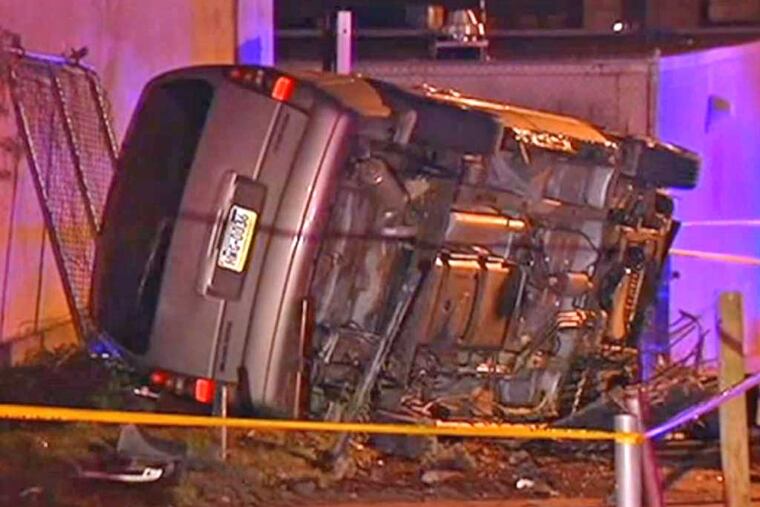City streets can be safer
It may be time to reassess your priorities when a failure to take care of supposedly less important issues is affecting your primary goal.

It may be time to reassess your priorities when a failure to take care of supposedly less important issues is affecting your primary goal.
Take the "broken windows" approach to policing, which calls for minor crimes such as littering or disturbing the peace to be swiftly and appropriately punished, sending the message that no degree of criminality will be tolerated. Unfortunately, that hasn't been the way traffic violations have been handled in Philadelphia. Consequently, too many dangerous drivers who at least should have had their licenses taken away are still on the road, and other people have died as a result.
The victims include Cornell Edens, who three years ago was hit on a Germantown sidewalk by a minivan whose driver was drunk and had a suspended license. Police had stopped the driver two months earlier for running a red light, but instead of arresting him on outstanding warrants, they ticketed him.
That has happened too often. Police in pursuit of bigger fish seem to be ignoring serious traffic crimes. Inquirer staff writers Mark Fazlollah and Dylan Purcell reported last week that Philadelphia has a backlog of nearly 819,000 outstanding warrants for moving violations and $187 million in uncollected fines. Warrants have been issued for 187,293 drivers, but history - including the only 500 arrested in 2014 - suggests they have little to fear.
Police Commissioner Charles H. Ramsey admitted, "I have not spent a lot of time on traffic." In a city struggling to further reduce its murder rate, his focus has understandably been on violent crime. But Ramsey has promised to pay more attention to his officers' handling of drivers stopped with outstanding warrants.
Last year's elimination of Philadelphia Traffic Court also should help make the streets safer. Not only did Traffic Court judges clean the slate for violators with friends in high places, but they too frequently let serious violators keep their licenses if they paid their fines and promised to be better drivers.
Even Traffic Court judges, however, noticed that police were citing fewer people for traffic violations, pointing it out in a 2010 report. An Inquirer analysis shows a 75 percent drop in traffic tickets since 1998.
Fraternal Order of Police president John McNesby blamed a staffing shortage. "We're down about 300 cops now," he said. Police staffing may be a concern in addressing any criminal activity, but it's not a valid excuse for officers who fail to take appropriate action when they do stop someone with a suspended license. Such drivers should be arrested, not just given a ticket and sent on their way.
The police and the courts must make it clear that dangerous driving has consequences.